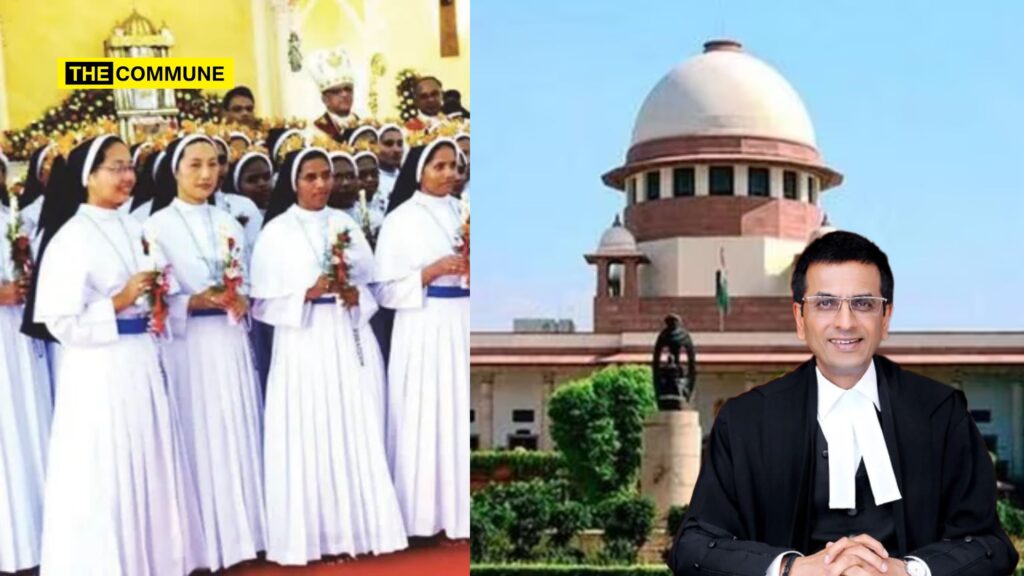The Supreme Court dismissed a series of appeals challenging the imposition of Tax Deducted at Source (TDS) on the salaries paid to nuns and priests working as teachers in government-aided educational institutions. A bench comprising Chief Justice DY Chandrachud, Justice JB Pardiwala, and Justice Manoj Misra upheld the Madras High Court’s decision, affirming that TDS must be deducted from these salaries.
The petitioners argued that nuns and priests had taken a vow of poverty, with their salaries redirected to their respective dioceses or convents, thereby not benefiting them personally. However, Chief Justice Chandrachud observed, “Salary is received, but because of the vow of poverty, they say I will not retain the salary… But how does it affect the taxability of the salary? TDS has to be deducted.” The Chief Justice stressed the need for consistent application of tax law, noting that similar religious obligations would not exempt Hindu priests from tax if they handed over their earnings.
The Madras High Court had earlier ruled that salaries earned by nuns and priests were taxable under Section 192 of the Income Tax Act, as they received payment individually before forwarding it to religious institutions. The court ruled that the transfer of funds to dioceses was an “application of income” rather than an exemption from tax at the source.
The petitioners’ counsel highlighted that according to Canon Law, nuns, and priests “suffer civil death” upon taking their vows, surrendering all personal income to the Church. Senior Advocate Arvind Datar argued that “they have renounced the world… For the last 85 years, the priests were never taxed,” and that nuns and priests should be exempt from TDS under an earlier circular by the Central Board of Direct Taxes (CBDT). The bench remained unconvinced, with CJI Chandrachud clarifying, “Without a statutory exemption, taxation cannot be avoided.”
The petitioners pointed to Kerala High Court rulings where families of deceased priests or nuns could not claim compensation under the Motor Vehicles Act, citing the religious “civil death” of these individuals. Chief Justice Chandrachud countered that while this may affect claims on their behalf, it did not impact tax liability.
Previously, the single bench of the Madras High Court had ruled in favor of religious institutions, agreeing that nuns and priests should not be subject to TDS as their incomes were effectively surrendered to the Church. However, a division bench overturned this, determining that the salaries were earned individually and transferred to the diocese only afterward, amounting to an application of income.
In dismissing the appeals, the Supreme Court affirmed the principle of uniform tax law, stating, “The law is common for everyone.”
(With inputs from LiveLaw)
Subscribe to our channels on Telegram, WhatsApp, and Instagram and get the best stories of the day delivered to you personally.

